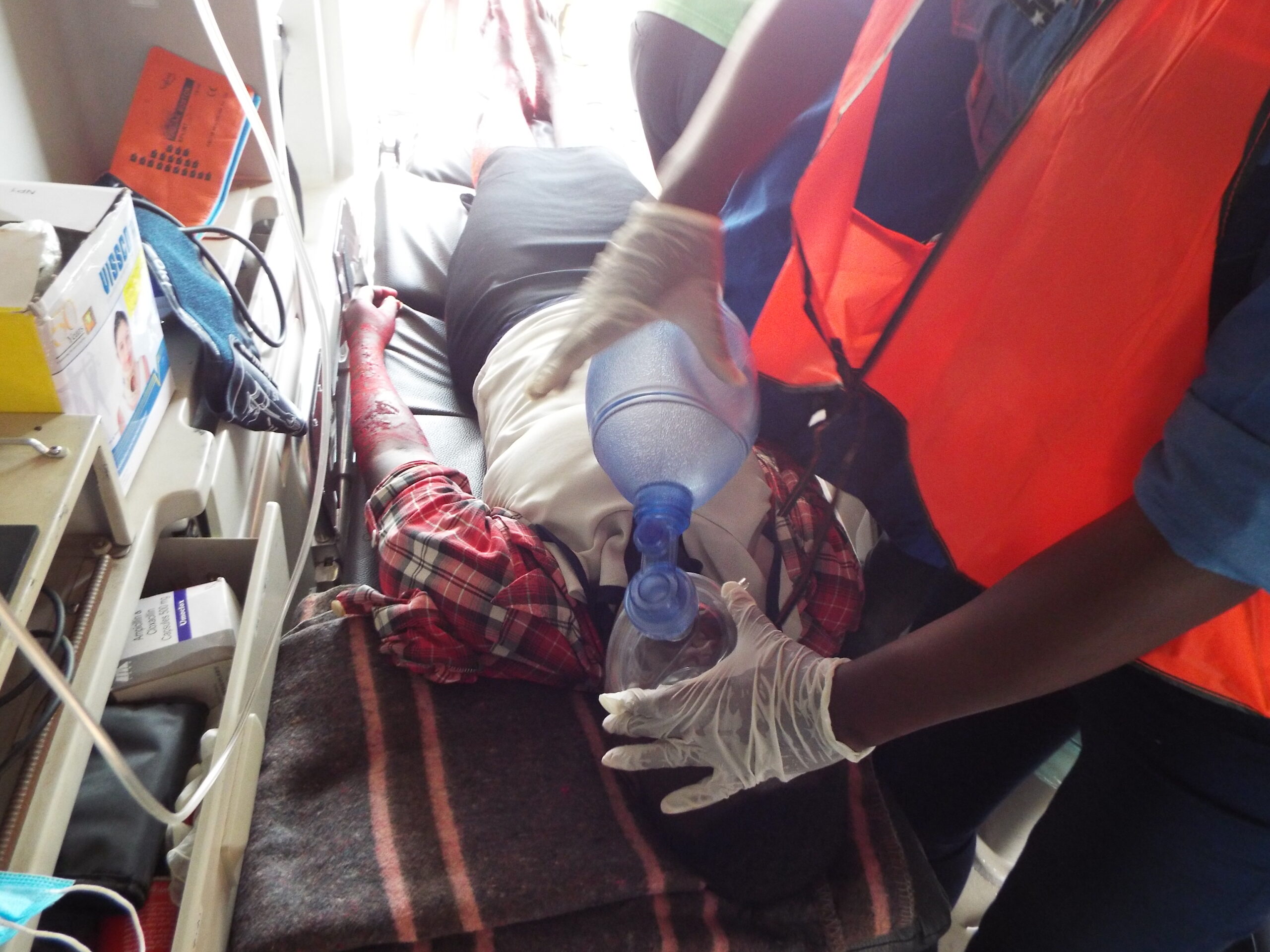Emergency Medical Services [EMS] is a vital and integral component of health systems particularly in the resource constrained countries like Uganda. It can help to minimize deaths, injuries, morbidities, disabilities and trauma caused by the road traffic incidents (RTIs).
EMS is critical to the improvement of outcomes in patients with obstetric and medical emergencies and severe injuries, and other serious time sensitive illnesses.
The aim of Emergency Medical care is to stabilize patients who have a life-threatening injury or illness. In contrast to preventive medicine or primary care, emergency medical care focuses on the provision of immediate or urgent medical interventions.
It includes two major components:
(i) medical decision-making
(ii)the actions necessary to prevent needless death or disability because of time-critical health problems, irrespective of the patient’s age, gender, location or condition.
Core components of emergency medical care
Emergency medical care in the community
Since most emergencies start at home, any system to promote the early recognition of emergency conditions should be based in the community. In order to save the lives of pregnant women it is important to reduce delays in accessing health care.
In Uganda, a significant proportion of maternal deaths is caused by avoidable factors, including the failure of health workers to identify serious complications and to refer promptly women who are seriously ill to higher levels of care, lack of ambulances to transport patients to higher levels of care among others.
Emergency medical care and transportation
An absence of emergency medical transport is a common barrier to care. This may arise because of any of several factors, including the lack of appropriate vehicles, the absence or inadequacy of roads, and the inability to pay for transport services. The consequences of a lack of transport can be grave.
Investment in ambulance vehicle and an improved communication system led to a doubling of the utilization of emergency obstetric services and a 50%reduction in case fatalities according to a study.
Emergency medical care at first-contact and referral facilities
The ready availability of treatment on arrival at a formal health care facility is the third component of emergency medical care. Health care facilities differ widely in respect of equipment, staff and resources, and they consequently possess varying capacities to provide emergency care. For this reason the level of care which can reasonably be expected at a primary care centre is significantly lower than that available at a tertiary care hospital. Nevertheless, some capacity to provide emergency care should be available at every level of a country’s health care system.
FAI Foundation is directly involved in providing Emergency Medical Services and is constantly building on her good relations with the District health offices, local council authorities to identify gaps in health care systems and develop together a community Emergency Medical Services project that will help reduce delays of patients reaching health facilities and thus reduce death.
MATERNAL EMERGENCY TRANSPORT PROJECT IN MPUNGE SUBCOUNTY, MUKONO DISTRICT
Prospective partners, collaborators and donors are encouraged to engage us for a project proposal on the planned emergency medical services project known as "Maternal Emergency transport project" to be implemented in Mpunge Subcounty in Mukono district together with the District health office of Mukono.
Summary of the Project
The project intends to procure 4 new land cruiser ambulances to be stationed at our community emergency call center and dispatched to Mpunge Health center III to respond to community emergencies and inter health facility referrals with more priority given to obstetric and pediatric emergencies among others.
The Project will train over 38 Village health Teams [community volunteers] in First Aid, basic Safe motherhood, basic HIV counselling skills, with an objective of utilising them in communities to identify mothers or clients with life threatening injuries or illnesses and call for an ambulance at our community call center for transportation to an appropriate health facility. The VHTs will also conduct health education to communities through home visits, outreaches among others approaches for purposes of awareness raising.
Project duration: 5 years
Implementers: FAI-Foundation
Project Supervisors: Mukono District Health Office
Project Area: Mpunge Subcounty, Mukono District
Target Project Beneficiaries: Teenage mothers, Expectant mothers, Newborns, children, mothers
Expected Total Target: 16300 People
